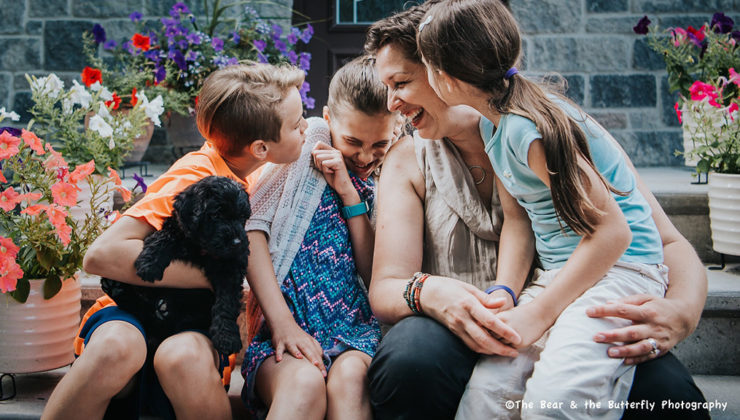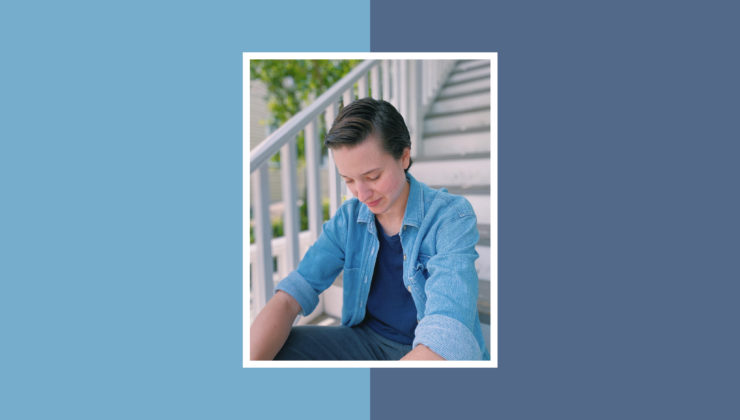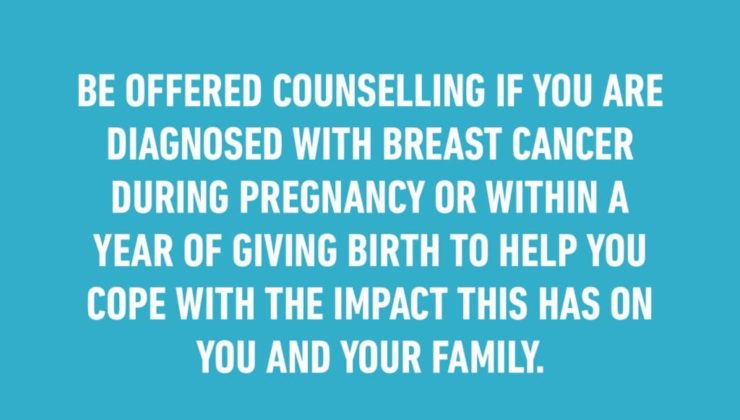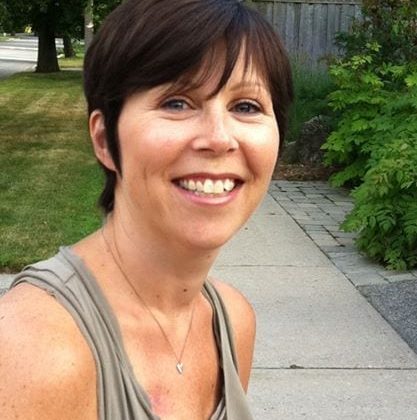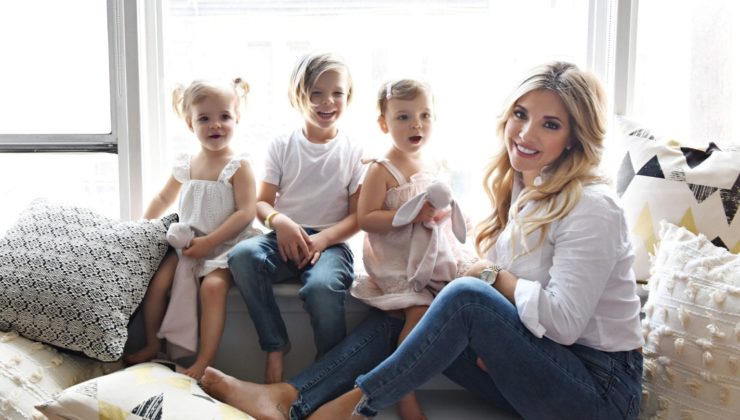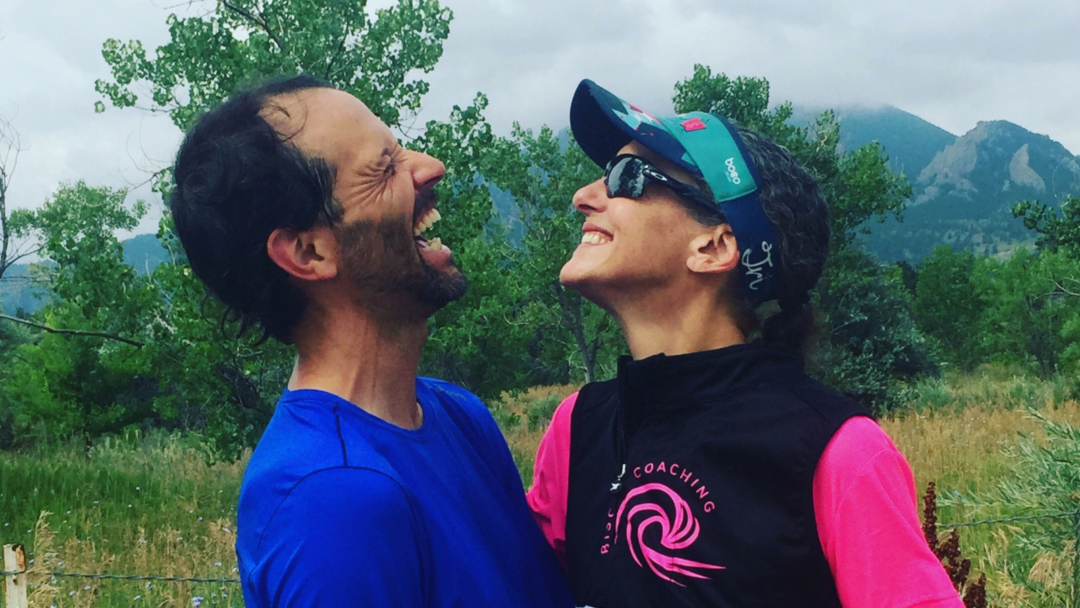
The Disappearing Vagina — A Wildfire Story
May 31, 2023
“Did you know my vagina might disappear?”
I peered over my glasses towards my partner, Brian, who was sitting three feet away, gently rubbing my feet. I was reading The Menopause Manifesto by Dr. Jen Gunter. I was in my 40s and nowhere near natural menopause. Natural menopause, however, was not an option for me. My ovaries were removed – along with my estrogen, sex drive, and pelvic floor function in April 2021. Instead of gradual hot flashes and mood swings, I was thrown immediately into the depths of the sweaty, emotional nightmare that is surgical menopause. I was reading up on the changes to come, hoping to face my destiny with renewed strength and motivation.
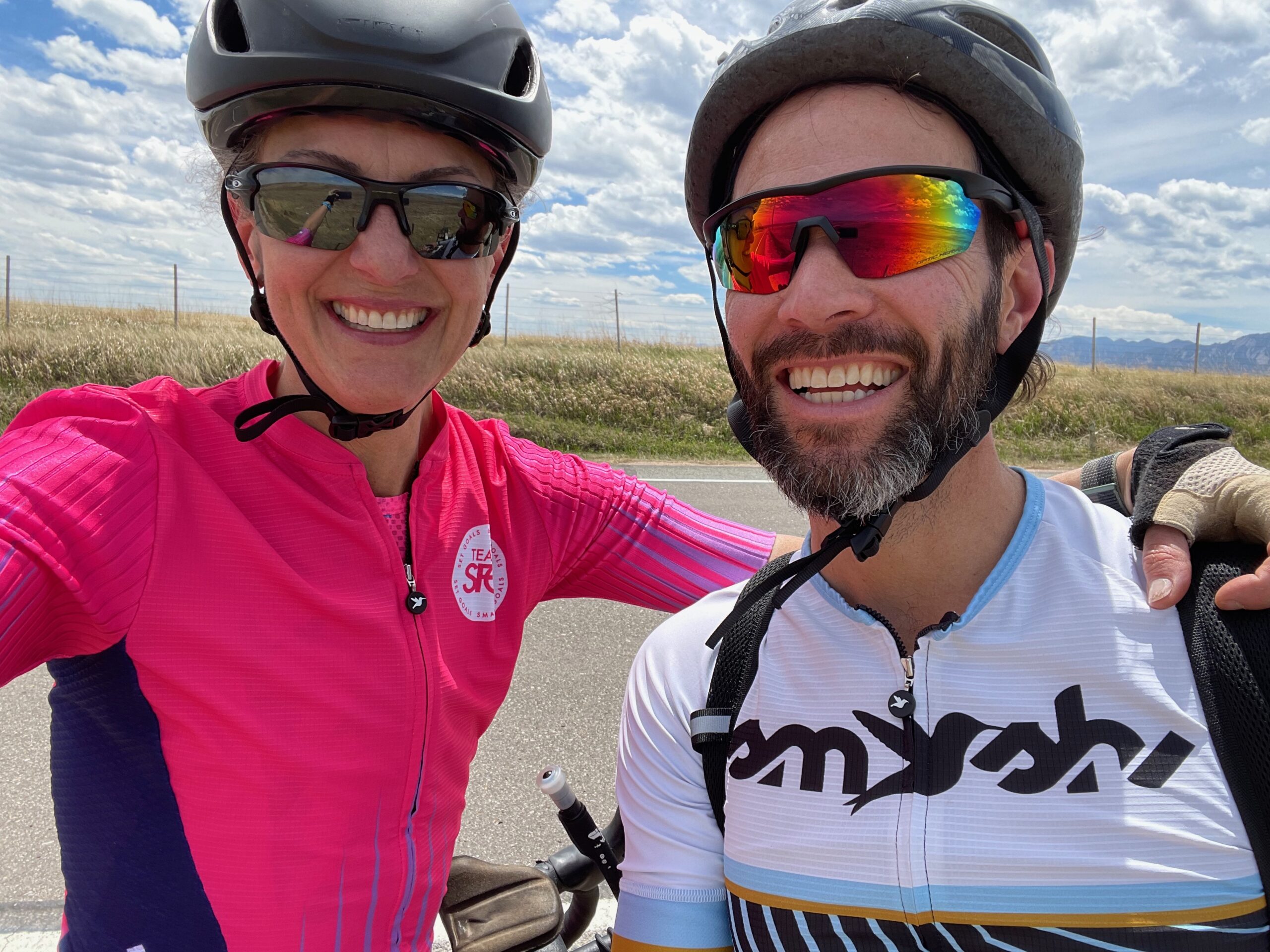
The diagnosis that landed my ovaries in a jar was hormone receptor positive breast cancer. Sitting in a sauna one day, I noticed the skin on one of my breasts appeared puckered, and I felt a lump underneath. As a physician, I knew immediately it was not normal and it was not good. The lump turned out to be 3.6 cm large and had been utterly invisible on mammograms. I was 45-years-old.
The day I felt that lump was the day I got on the Cancer Coaster – the roller coaster of emotions and existence that becomes life after a life-threat. Brian, without hesitation, got on the ride with me. On January 27, 2021, at 3:05 pm, I heard the words, “It is cancer.” Brian was holding my hand when the phone rang and held me tight when my face crumbled. We sat in shock while the radiologist recommended next steps, and then we wept. He left me reluctantly to pick up our daughter from school, still crying but forced to get on with life.
To an extent, every day since has been “getting on with life” while your life clock is ticking down faster than everyone else’s. Kids go to school, jobs are done, mortgages are paid. Cancer doesn’t care about those things. But breast cancer is particularly cruel in its destruction. As I quickly learned, removing the cancer was just the beginning of the loss of femininity and sexuality and the changes it would wreak on our intimacy.
We landed at a surgeon’s office, as most breast cancer patients do. I walked in with a request – bilateral mastectomy without reconstruction. I had a large tumor in a small breast so a lumpectomy was not really an option (though it was offered, offhandedly, with radiation). I did not want radiation, and I did not want to save a breast that had betrayed me with its invisible tumor and normal mammograms. I also did not want to keep the other one: with my obsessive tendencies towards tidiness and right angles, asymmetry was not for me. I wanted to get back to my active life of swimming, paddle boarding, and cycling. I did not want reconstruction.
Despite my self-advocacy, and my partner’s obvious support, I was questioned. I was told I might regret this and that reconstruction would help me “feel like a woman” again. I was offered counseling and a referral to a plastic surgeon. Brian and I had a long talk about breasts. Sadly, despite a loving and physical relationship, I didn’t know how he felt about my breasts until cancer put them on the chopping block. We discussed our options and reasons for or against. With reconstruction I’d look normal in clothes, and strangers would not know, but was that a good enough reason? Under those clothes, there would still be scars, and weirdly insensate skin and tissue that would have none of the erotic feelings that my real breasts had. They wouldn’t be doing anything for me during sex, and for Brian, they would just be a reminder rather than a replacement. We looked at topless photos of women with and without reconstruction. We found a community of “flatties” living their lives, and we agreed not to endure any extra procedures or surgeries or undergo any more risks than we were already facing. We’d made our choice.
I came home from the mastectomy with drains hanging out of my chest that had to be emptied twice a day. I had to sleep upright, so we agreed Brian would sleep in a different bed – we lost our morning ritual of hand holding then. Brian worked out my Tylenol/ Ibuprofen schedule, dealt with my drains, and fed me food in liquid form until I could tolerate more. I can’t know for certain whether his profession as a nurse made him particularly outstanding in the post-operative setting, but I was happy to have his experience. He pulled me back from the dark every time I went there (recurrence, death, leaving my young daughter) and never asked me to do the same for him.
If only breast cancer could leave it there. But menopause is often a necessary part of breast cancer treatment, whether induced with injections or permanently with ovary removal. My tumor cells sucked up estrogen like a sugar addict eats Pixie Sticks, and I knew that the best chance I had to prevent recurrence was to get rid of my estrogen. This time though, it wasn’t cosmetic. It was permanent, and it was scary.
I turned to The Menopause Manifesto, hoping to arm myself again with knowledge and information so I could be prepared. Instead, it made me cry. In the short term, I’d be facing hot flashes, mood swings, and fatigue – annoying, but tolerable. In the long term, and with no going back, there would be risks of osteoporosis, high cholesterol, heart disease, and dementia, but even that wasn’t what made me cry. The changes that my physical body would undergo – muscle loss, weakness, and the seeming disintegration of my pelvic organs – was entirely new to me. Especially the part where vaginal intercourse could become so painful that it was impossible, in which case the walls of my vagina would gradually atrophy and shrink, right along with my ability to have an orgasm.
“Did you know my vagina might just disappear?” They did not teach me that in medical school. They didn’t teach much about menopause at all – a few comments here and there, whereas we spent months learning about menstrual cycles, puberty and hormones. Once those were gone, women’s health was an afterthought. At age 45, I wasn’t quite ready to become an afterthought. I wasn’t ready to stop being intimate with my partner or to stop having intercourse.
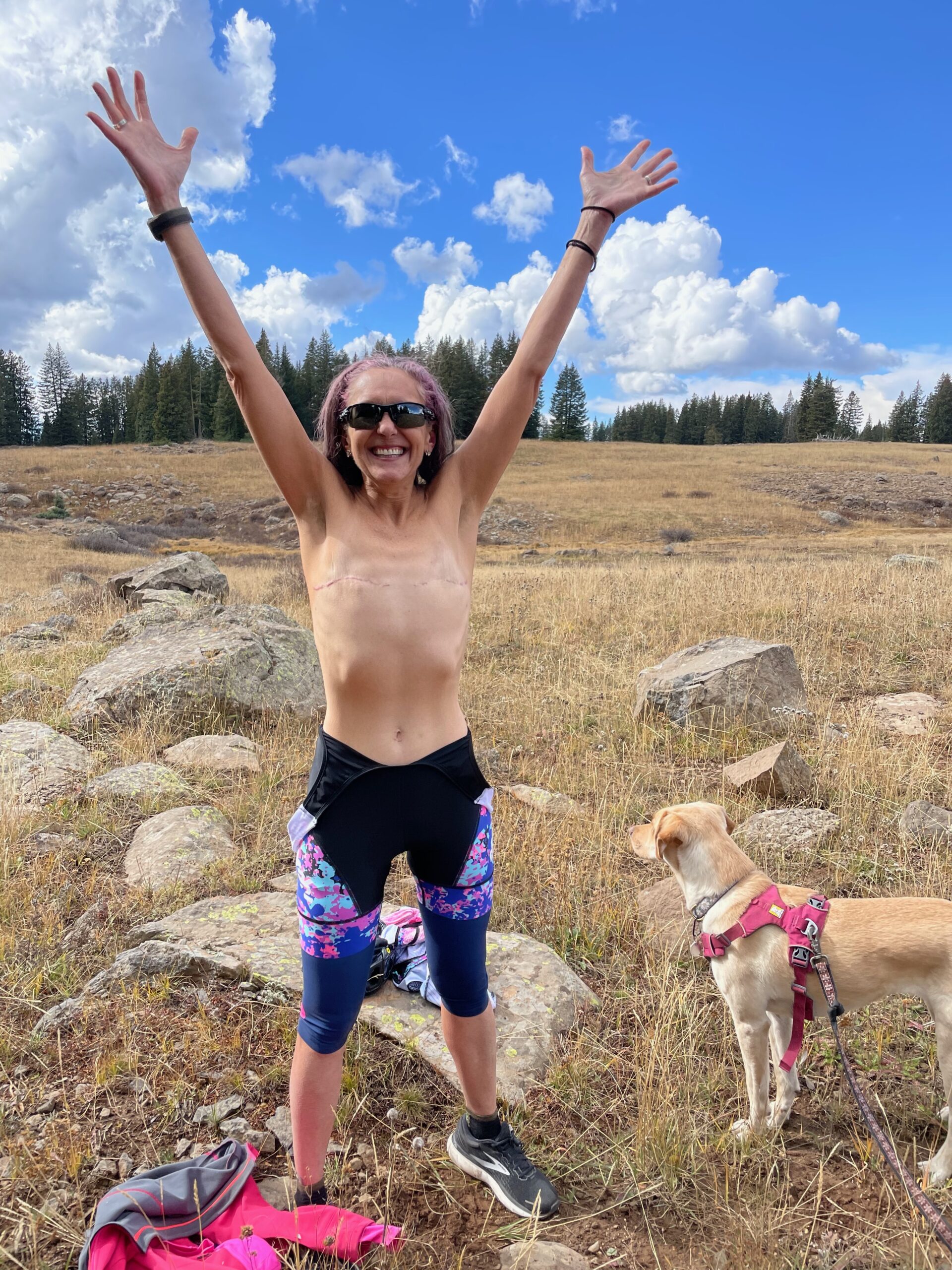
My greatest fear was, and continues to be, cancer recurrence. I sacrificed my breasts, and a month later my ovaries, to prevent it, all with Brian’s full support. We didn’t have many other options, as the alternatives would have been too risky, but we were not prepared for the ongoing insults to my body and to our relationship. Just as my chest was healing from the mastectomy, my ovaries were removed. The hot flashes came on hard and fast.
For six months, I could not sleep without two fans and a cooling device on me at all times, so we still couldn’t sleep together. I developed arthritis from the drugs that suppressed my estrogen further. My hair started thinning.
I began to question why someone would partner with a 45-year-old person who by all biological standards barely resembled a woman anymore. It was one thing to be flat – it was another thing entirely to be unable to have sex, to enjoy orgasms, to tolerate being touched. Brian never gave me the impression that it mattered one bit; this insecurity came from inside. One by one I lost my parts, pieces, and hormones, and the wreckage left behind didn’t seem relationship-worthy to me. I told him I would understand if he left. He did not leave. He punched another ticket on the Cancer Coaster and decided to buckle in for the ride.
Two months later we got married, during COVID-19, in our backyard with twenty of our closest family and friends. I wore red – Brian’s favorite color. I did not wear my prosthetics (I rarely do). We clearly had the “sickness and health” part managed. We ride the Coaster, up and down, with each scan and doctor visit, holding hands. We have worked on mitigating the damage, and to show each other physical affection in whatever way we feel is right at a given moment. We took a course on intimacy after cancer, slowly finding ways to work with what we have, instead of lamenting what we don’t. Cancer does that to the mind and soul: it puts a laser sharp focus on what we have, because there’s already so much we don’t.
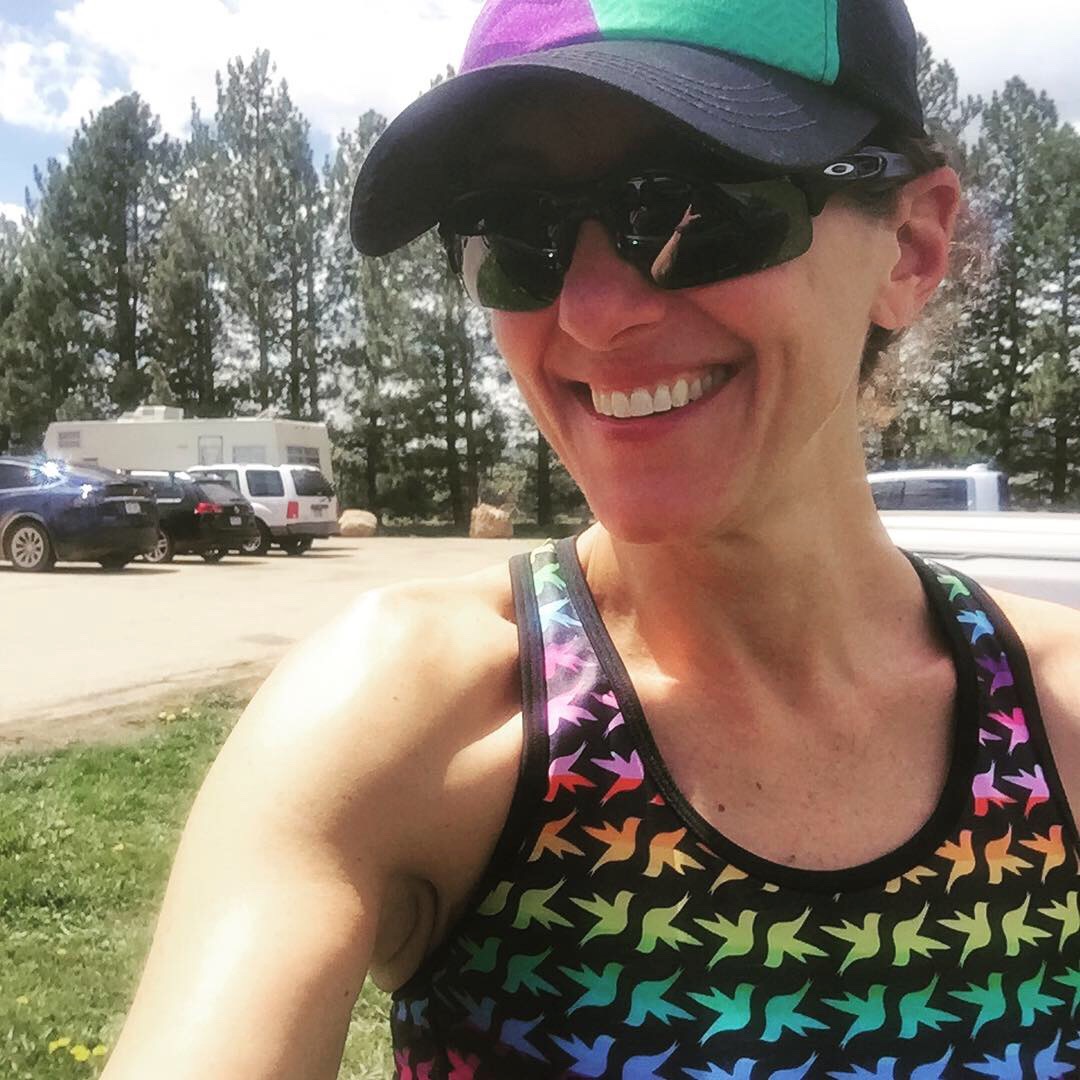
Tracy Cushing • Emergency medicine physician. Diagnosed at 45. ILC, Stage II, ER+. Tracy went from being a physician to becoming a patient in 2021. Dense breasts hid her cancer from mammograms until it was over three centimeters. She had a bilateral mastectomy without reconstruction, got her ovaries removed, and is two years on an aromatase inhibitor. She is an asthetic flat closure and lobular research advocate through the Lobular Breast Cancer Alliance. Instant menopause at age 45 was no joke, and it has been the wildest part of this ride for Tracy and her husband, Brian. They live in Colorado with their daughter and rescue pups. Tracy has started a cancer consulting business to help others on their journey, and in her free time she eats a lot of vegan food and dabbles in triathlons. She is most happy on two bicycle wheels in the sunshine. • @tracycrushescancer
This piece has been republished with permission from WILDFIRE Magazine, the “Love and Intimacy” issue, published originally April 15, 2023. More information available at wildfirecommunity.org
WILDFIRE Magazine is the only magazine for young women survivors and fighters of breast cancer under 45 years old. Headquartered in Santa Cruz, California, WILDFIRE is a beautiful, story-based bi-monthly magazine published on different themes relevant to young women survivors, from stage 0 to stage IV. Beautiful and ad-free! Visit wildfirecommunity.org for more info.

